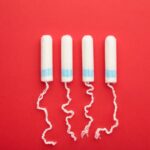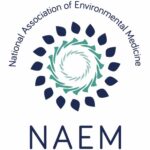Umy works to bring menstrual equity conversations into her community to help end period stigma!
———
Our work with young people is a gamechanger. Connecting across generations and investing in young leaders who help give traction to our research and policy strategies is bringing about positive change.
That’s Umyeena Bashir, she/her, the California Intimate Care Organizing Fellow at WVE and a graduate student at the University of San Francisco studying Organic Chemistry. Passionate about researching period health and educating others on these issues, Umy built a free period tracking app and is compelled to expand the visibility of this work by pursuing a second year of the WVE fellowship.
Through the fellowship, Umy learned that educating communities involves developing intentional relationships and earning trust in order to move people to action. In peer spaces, she has worked with young people to bring voices and experiences missing from the environmental health movement.
It took time to bring people together at first though. When Umy began to organize Our Stories, Our Flow workshops — designed to help open-up conversations about period health — few people came. With support from WVE, Umy learned about effective ways to conduct outreach. Once the group got going, it became evident that no one in the room had spent time scrutinizing ingredient labels.
It is also clear that stigma eclipses people’s curiosity about period health.
A young woman attending one of Umy’s workshops offered her own solution to the issue of stigma surrounding menstruating bodies: “Don’t keep it a secret. Make it Known.”
This resonated strongly with Umy. While she was breaking down stigmas in her community, she recognized there was an important space she was missing; a space where it was arguably even more crucial and more intimidating to start having honest conversations about menstruation: at home. Umy challenged herself to follow the young woman’s lead and began by disrupting shame within the family space. Risking embarrassment, she made it known to her father that she was having a period. In owning her menstrual experience, Umy offered a gender-affirming and health-centered narrative.
From an individual’s experience to organic combustion within peer and family circles, the ripple effect sets in motion a shift in perspectives and social norms. In short, small actions build big impact.
And what has that impact looked like this year? At the ecosystem level, WVE remains focused on accountability and legislative efforts. Our team is on task at pressuring companies to prioritize the health of people and the planet over profit, and is collaborating closely with policymakers to pass and implement laws that regulate the use and disclosure of chemicals in products. This year alone, WVE:
- Influenced tampon manufacturers who discontinued the use of fragrances in tampons sold in the US, which means millions of menstruators will no longer be exposed to unnecessary chemicals.
- Co-released new product-testing results that reveal potential harm to vaginal health from intimate care products.
- Released the report, What’s in Your Period Products: An Investigation of Ingredients Disclosed in Period Products, which spotlights the powerful impact of new disclosure policies and practices
- Elevated the artivism showcase prepared by fellows, including Umy, who are countering stigma and raising awareness about ingredient disclosure among their peers.
Together with young activists and emerging leaders, we are disrupting the status quo and making change, because the only acceptable future is a toxic-free one.
The invitation is for you to help make our impact in 2023 our best yet by donating to the “Weaving Strong Leaders” end-of-year campaign. Everything we raise by Dec. 31st is allocated towards programmatic work we’ll do together in the new year. Your donation is also matched by a generous gift of $25,000 from one of our donors. Please consider contributing $50, $150 or even $10,000 and beyond — any amount you deem appropriate is truly impactful.
Thank you for helping us meet our goal! And thank you for helping ensure young advocates and future leaders like Umy have the resources they need to advance the environmental health movement forward.






